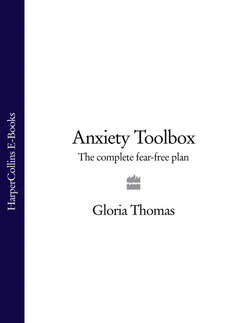Читать книгу Anxiety Toolbox: The Complete Fear-Free Plan - Gloria Thomas - Страница 42
Phobias
ОглавлениеA phobia is an intense and persistent fear or aversion for a specific object or situation that poses little or no danger. It is estimated that 1.9 per cent of adults in the UK and around 6.3 million Americans experience phobias, with women suffering more than men.
When an individual has a phobic reaction, they are likely to experience an extreme paralysing fear along with symptoms of panic and nausea. People who suffer from phobias know that their reaction to the object in question seems irrational to the rest of the world – and often they see it as such themselves. However, knowing this makes no difference and, in fact, often only increases the emotional distress and embarrassment the sufferer feels.
Phobias are very easy to identify because of the intense irrational response to the normally harmless, perceived threat. Specific phobias can be about spiders, snakes, escalators, lifts, blushing, visiting the dentist, particular kinds of food, insects, birds, injections, exams, animals, flying, water, blood, needles, heights, tunnels…The list is endless. There are also more complex phobias, such as agoraphobia, which can be made up of a number of fears.
Like all anxiety disorders, phobias differ in their degree of severity. Some people can manage their phobia simply by avoiding the object or situation that they are phobic to. This is straightforward enough if you have a fear of something very specific that isn’t part of your everyday life – i.e. a fear of flying or a phobia about needles. However, certain types of phobia can interfere with life on a day-to-day basis. A water phobia could, for example, not just prevent you swimming but also washing; a phobia about germs can prevent you from ever going outside your house; and a social phobia could have an impact on career choices and relationships.
The cause of most phobias can be found in childhood. Often a state of high emotion is linked to an event or an object or situation, so that whenever the individual finds himself or herself in a similar situation they have the same phobic response. Even the thought of the object or a similar situation can bring on a strong phobic response in the body. Phobias can lead to personality disorders, avoidance behaviours and other anxieties such as OCD.
